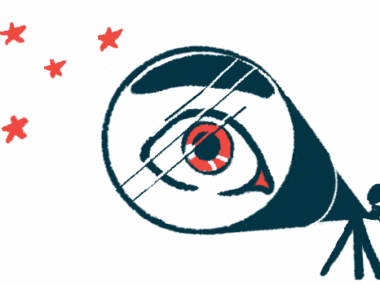Being tough isn’t enough in the battle against Huntington’s
Honesty and vulnerability will be crucial as my wife's HD progresses
Written by |

My wife, Jill, has always been the embodiment of resilience. She’s the type of person who can power through even the most daunting circumstances. I loved this quality when we met because it was a testament to her strength of character. She especially relies on her toughness as she battles Huntington’s disease (HD), though she’s trying to be at peace with being vulnerable.
Her resiliency was tested a few weeks ago after we visited several museums in Washington, D.C. The day started off well, with Jill’s usual energy and enthusiasm. But as the hours passed, I couldn’t help but notice a subtle shift in her. She wanted to rest more often and winced at times. When I asked if she were OK, she brushed it off with her signature “I’m fine” response.
I was pretty sure I knew what was troubling her. We’d recently visited an amusement park, and as she was getting on the flume ride — a “log” that is propelled along by the flow of water — the log moved, which wrenched her back.
Jill’s high threshold for pain has always been part of what defines her, but in the face of her Huntington’s diagnosis, this trait has become a double-edged sword. There’s a fine line between being tough and putting oneself at risk, and I fear Jill has been walking that tightrope for too long.
Her refusal to admit when something’s wrong doesn’t stem from weakness, but rather from her desire to maintain control over her body and mind. Even though she’s trying to be better about not needing to be so tough, it’s a difficult habit to overcome.
That evening we had a much-needed conversation about the nature of toughness and the importance of knowing one’s limits. I reminded Jill that her health is no longer solely her burden. As her caregiver, I need her to be honest with me about her struggles. Only then can I be prepared to advocate for her when she can no longer do so for herself.
It wasn’t an easy discussion, as Jill’s tough-girl mentality made acknowledging weakness feel like failure. I urged her to see that real strength resides in the ability to say “I’m not OK” and to allow me to be there for her.
Jill agreed that she needs to be more forthcoming about any pain and discomfort she experiences, and I realize I have to remain patient with her.
I’ve come to realize that these conversations aren’t just about her well-being; they’re also about the strength of our bond, which will become ever more vital as her Huntington’s progresses.
Note: Huntington’s Disease News is strictly a news and information website about the disease. It does not provide medical advice, diagnosis, or treatment. This content is not intended to be a substitute for professional medical advice, diagnosis, or treatment. Always seek the advice of your physician or other qualified health provider with any questions you may have regarding a medical condition. Never disregard professional medical advice or delay in seeking it because of something you have read on this website. The opinions expressed in this column are not those of Huntington’s Disease News or its parent company, Bionews, and are intended to spark discussion about issues pertaining to Huntington’s disease.







LINDA LEE MILLER
Carlos, I applaud you for taking care of Jill as you do, and I applaud Jill as she battles this progressive disease! I lost my husband to it two and a half years ago and both my kids, a son and a daughter, carry the gene. My son who is older has a higher CAG repeat number and is showing anxiety and depression. My daughter who is a professional jazz singer says she can't learn new lyrics as easily as she did years ago. I know from reading your weekly column that you have a daughter who inherited the disease, and my heart goes out to you. I try to keep up with the latest research and they're edging closer and closer to a cure - but we're not there yet...